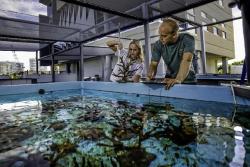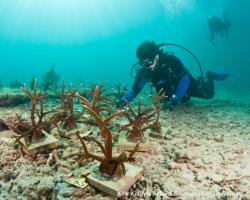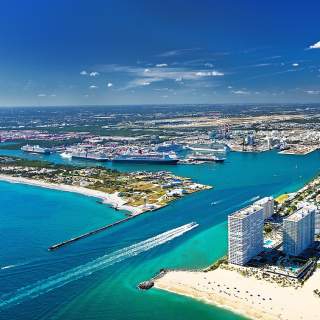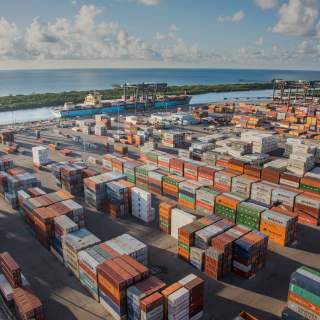Reefs
Reef Mitigation
The US Army Corps of Engineers (USACOE) Chief’s Report includes some significant  mitigation measures to be implemented at the outset of the project. A key innovation of the project includes transplanting approximately 103,000 nursery-propagated corals over existing reef areas and new artificial reefs, along with the relocation of existing corals that may be affected within the footprint of the project.
mitigation measures to be implemented at the outset of the project. A key innovation of the project includes transplanting approximately 103,000 nursery-propagated corals over existing reef areas and new artificial reefs, along with the relocation of existing corals that may be affected within the footprint of the project.
In addition, the mitigation plan includes restoring seagrasses and mangroves in West Lake Park located just south of Port Everglades, and building environmentally friendly bulkheads throughout the channels to further reduce the impacts of the project. USACE and the National Marine Fisheries Services developed a mitigation plan after extensive public comment that includes traditional and innovative approaches to environmental compensatory mitigation. Read more
Services developed a mitigation plan after extensive public comment that includes traditional and innovative approaches to environmental compensatory mitigation. Read more
Artificial Reef Program
One of South Florida's artificial reefs is named after Port Everglades on behalf of the Port's continuous cooperation. Read more
Anchorage
Port Everglades worked with the U.S. Coast Guard to relocate the anchorage (ship waiting area) to a safer location to avoid damage to the coral reefs. Read more
Rubber Tire Removal
Port Everglades participated in the removal of tires from artificial reefs by waiving associated port fees valued at an estimated $150,000. Read more
Southeast Florida Coral Reef Initiative (SEFCRI)
A representative from Port Everglades serves as a “Other/Citizen at Large” to represent stakeholders in southeast Florida. Read more
PHOTOS: Our neighbor, Nova Southeastern University is already having great success with nursery-raised corals at their Ocean Campus of the Halmos College of Natural Sciences and Oceanography.

